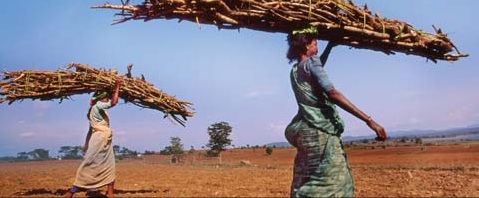The World Banks's 2012 World Development Report (WDR) focuses on gender equality, but as PovertyMattersBlog points out, they only do so as a means to economic growth:
In a step forward, the WDR recognises the important work women do caring for children and the elderly: cooking, cleaning, and collecting firewood and water. These activities, performed alongside other work, are a heavy burden for women and act as a barrier to accessing higher earning jobs or participating in politics. The report notes that "women work more than men", but does not then consider that their workload increases significantly during an economic crisis. At such times, when family incomes drop and public services are cut, women and girls produce essential domestic goods that they can no longer afford to purchase such as food and clothes. When medical bills become too expensive or public healthcare services are not available, it is women and girls who care for the ill at home. Women's labour not only replaces household income, but also subsidises the state.
Full post from PovertyMatters.
Head nod: M.D.
In a step forward, the WDR recognises the important work women do caring for children and the elderly: cooking, cleaning, and collecting firewood and water. These activities, performed alongside other work, are a heavy burden for women and act as a barrier to accessing higher earning jobs or participating in politics. The report notes that "women work more than men", but does not then consider that their workload increases significantly during an economic crisis. At such times, when family incomes drop and public services are cut, women and girls produce essential domestic goods that they can no longer afford to purchase such as food and clothes. When medical bills become too expensive or public healthcare services are not available, it is women and girls who care for the ill at home. Women's labour not only replaces household income, but also subsidises the state.
Full post from PovertyMatters.
Head nod: M.D.

 RSS Feed
RSS Feed